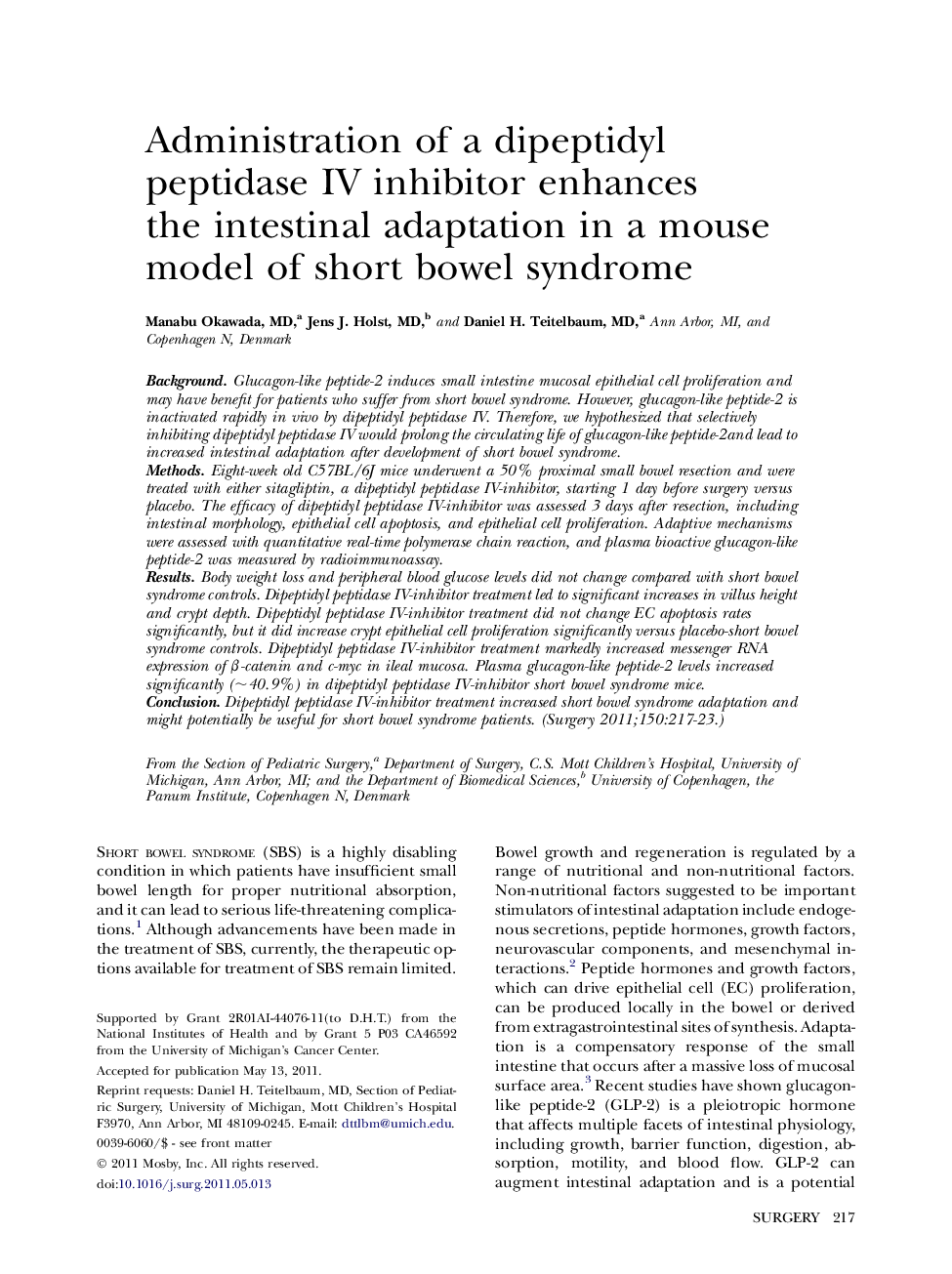| Article ID | Journal | Published Year | Pages | File Type |
|---|---|---|---|---|
| 4308803 | Surgery | 2011 | 7 Pages |
BackgroundGlucagon-like peptide-2 induces small intestine mucosal epithelial cell proliferation and may have benefit for patients who suffer from short bowel syndrome. However, glucagon-like peptide-2 is inactivated rapidly in vivo by dipeptidyl peptidase IV. Therefore, we hypothesized that selectively inhibiting dipeptidyl peptidase IV would prolong the circulating life of glucagon-like peptide-2and lead to increased intestinal adaptation after development of short bowel syndrome.MethodsEight-week old C57BL/6J mice underwent a 50% proximal small bowel resection and were treated with either sitagliptin, a dipeptidyl peptidase IV-inhibitor, starting 1 day before surgery versus placebo. The efficacy of dipeptidyl peptidase IV-inhibitor was assessed 3 days after resection, including intestinal morphology, epithelial cell apoptosis, and epithelial cell proliferation. Adaptive mechanisms were assessed with quantitative real-time polymerase chain reaction, and plasma bioactive glucagon-like peptide-2 was measured by radioimmunoassay.ResultsBody weight loss and peripheral blood glucose levels did not change compared with short bowel syndrome controls. Dipeptidyl peptidase IV-inhibitor treatment led to significant increases in villus height and crypt depth. Dipeptidyl peptidase IV-inhibitor treatment did not change EC apoptosis rates significantly, but it did increase crypt epithelial cell proliferation significantly versus placebo-short bowel syndrome controls. Dipeptidyl peptidase IV-inhibitor treatment markedly increased messenger RNA expression of β-catenin and c-myc in ileal mucosa. Plasma glucagon-like peptide-2 levels increased significantly (∼40.9%) in dipeptidyl peptidase IV-inhibitor short bowel syndrome mice.ConclusionDipeptidyl peptidase IV-inhibitor treatment increased short bowel syndrome adaptation and might potentially be useful for short bowel syndrome patients.
